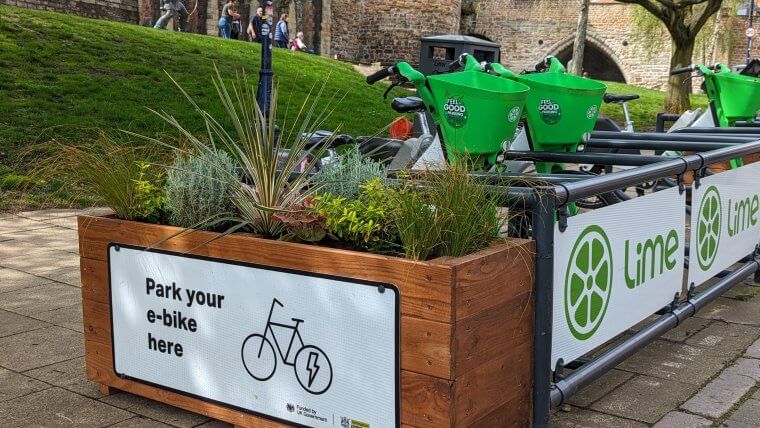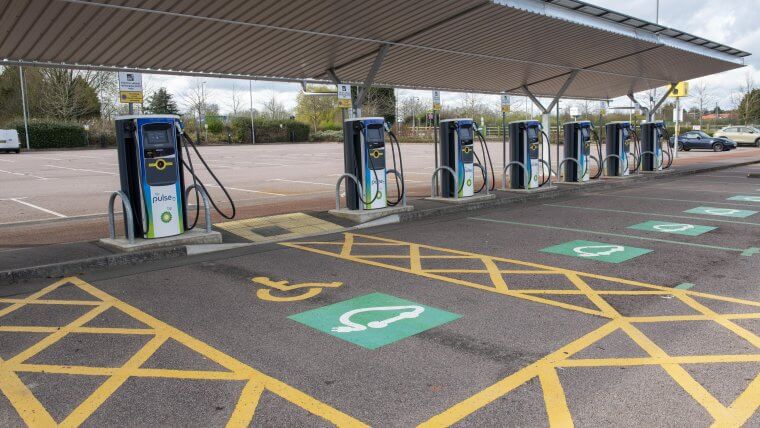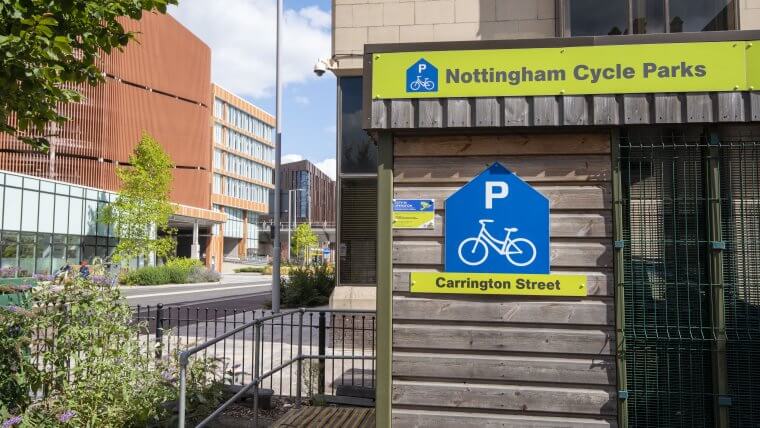26 September

East Midlands Ambulance Service (EMAS) provides emergency 999 care and telephone clinical assessment services for 4.8 million people. The service has 714 vehicles and recently commissioned its first two electric vehicles for its fast response service.
EMAS is committed to reducing its carbon dioxide (CO2) emissions by 30% from 2014/2015 to 2020. To boost their journey, they applied for a grant through our Workplace Travel Service and received £25,000 to install eight new charge points. Now that the installation is complete, we asked Philip Tamuno, Environment Manager, to share their experience and future plans for sustainability.
Why did you apply?
We always explore opportunities to reduce our vehicle emissions. Installing charge points has always been a priority for us but the rollout was still a challenge due to the complexity behind finding suitable locations within the ambulance stations and an appropriate number of charge points to meet the demand in the organisation.
What did you apply for?
We applied for funding to install eight new 7kW dual units at three locations:
- Four at the head office
- Two at the divisional headquarters
- Two at the operational specialist unit
We also used the fund to buy 12 type 2 cables to be used with the charge points.

How did you find the application process and ongoing support?
The application was easy and straight forward and the process itself helped in many areas of the project:
- Having three bidders made it easy for us to select the best supplier on the market.
- The three year warranty was also very useful as maintaining the units for three years could potentially outweigh the cost of installation.
- Having the ability to talk to companies who were successful in receiving the grant was also very useful as we were able to understand the benefit of each options provided by suppliers and compare them to what is available on the market.
- The survey helped to identify the demand of the charge points in the organisation and justify the installation in the chosen locations. It also helped to see how many people would be encouraged to switch to EVs if the infrastructure was built- this was a key tool in understanding the benefits of having the units installed.
Would you have considered doing what you did without grant and support?
We had the intention to install charge points in our premises, however, we wouldn’t be able to do it as fast and at this large scale, without NCC’s support.
The funding was a catalyst for us, since it is available for a limited time, it meant that we had to prioritise the installation in order to receive the award. The knowledge and experience that NCC has of the installation and operation of the charge points helped us to add a degree of resilience in the infrastructure and ensure each location had at least two charge points to allow charging even when one unit is down.
How will it help your business or organization?
We have already benefited from the development of the infrastructure, for instance, having charge points made it possible for us to join the ULEV Experience Loan scheme. We loaned a Nissan leaf and a Hyundai Kona in May and June and 14 staff had the opportunity to try the vehicles.
The infrastructure also made it possible to welcome two new BMW i3s to the fleet, which will be used for our fast response service. The 7 kW chargers will allow fast charging in our premises and therefore maximise the use of the EVs in the fleet. We now also have the knowledge to install charge points at other sites from the learning of this experience.

How does it support your workforce, service users or customers?
Range anxiety is a major problem around the use of electric vehicles so having charge points in the workplace helps to address that. This has greatly encouraged our employees and, in fact, one staff member bought an EV after the charge point was installed. We haven’t yet received visitors who are EV drivers but having the charge points here will also give them the assurance they will find a place to charge their vehicles when visiting the service.
How will it benefit your business?
In terms of corporate social responsibilities, we attended two roadshows to share what we have done to reduce our emissions including the EV project. This increased public awareness on what can be done to reduce CO2 emissions and also gave us a platform to let people know what the service does and what we are committed to. We not only look at how to transport patients but most importantly what is good for patients. We are aware of the growing demand for green transport, and this gives the resilience to support staff now and in the future. It helps to make people understand that we care for the environment and how it impacts on public health.
How will it encourage growth in sustainable transport now and in the future?
We have an ongoing cycle to work scheme and the charge points add perfectly into the whole sustainable package we offer to staff. One of our staff members lives in Derby and comes to work in Nottingham with his Tesla but he also cycles to work. This is the kind of encouragement we want to give to our staff and the charge points have already made a difference.






